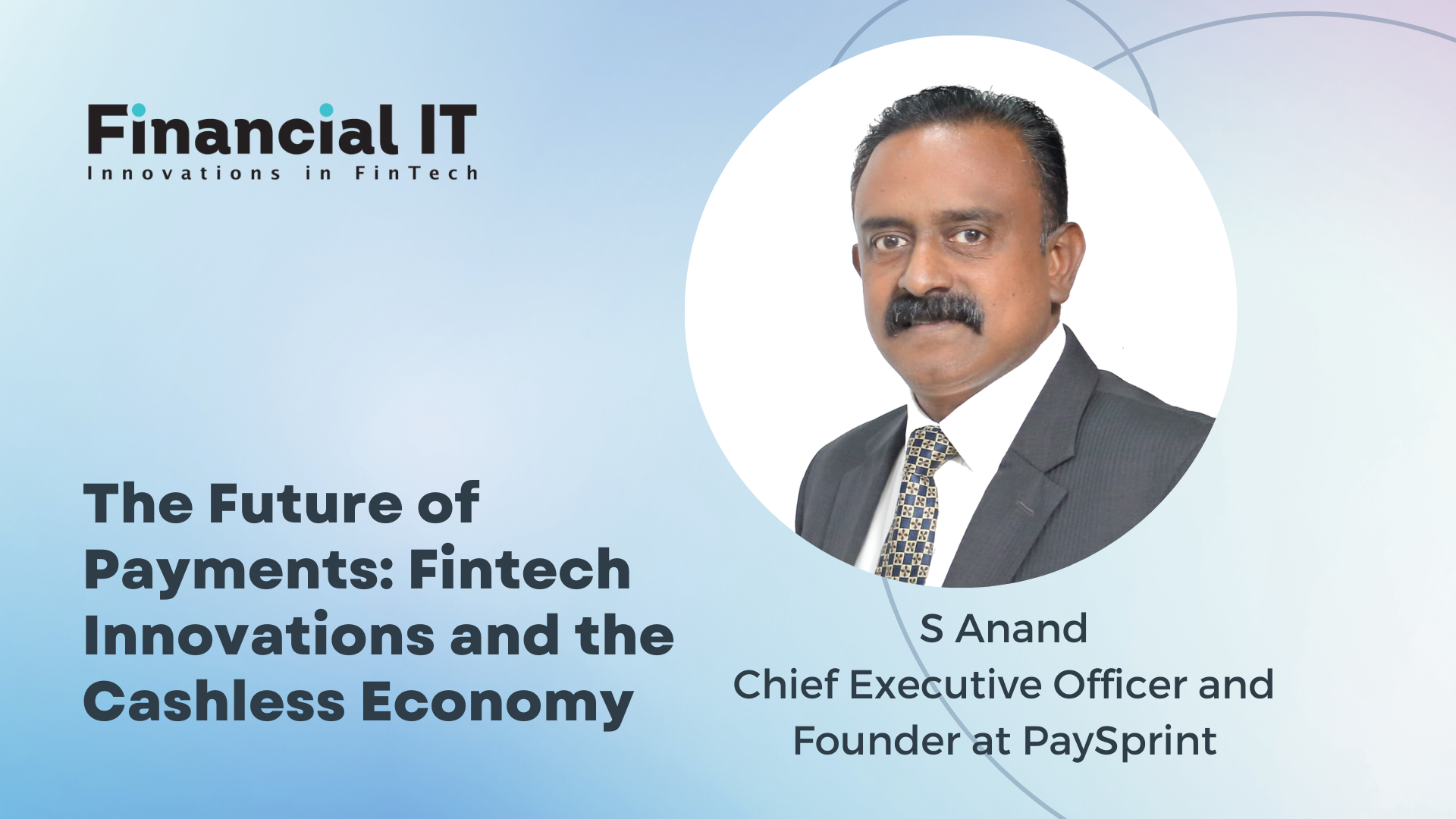The Future of Payments: Fintech Innovations and the Cashless Economy

- S Anand, Chief Executive Officer and Founder at PaySprint
- 08.06.2023 02:30 pm #payments
The way we make payments is rapidly evolving, owing to the rise of fintech innovations. The traditional concept of physical currency is gradually giving way to digital transactions and the emergence of a cashless economy. From mobile payments and digital wallets to blockchain technology and contactless solutions, we will delve into the transformative power of fintech in shaping the payment landscape.
Rise of Mobile Payments and Digital Wallets
Mobile payments and digital wallets have revolutionised the way we conduct transactions. With the increasing ubiquity of smartphones, consumers can now make seamless payments using their mobile devices. Fintech companies have developed secure and user-friendly mobile payment apps that enable individuals to pay for goods and services with a simple tap or scan. These digital wallets store payment credentials and eliminate the need to carry physical cash or cards. With features such as loyalty programs and rewards, digital wallets
enhance the overall payment experience and promote customer engagement.
Contactless Payments and Near Field Communication
Contactless payment technology, facilitated by near-field communication (NFC), is gaining significant traction in the payment industry. This technology enables secure and swift transactions by simply tapping or waving a contactless card or smartphone near a payment terminal. Fintech innovations have played a crucial role in promoting contactless payments, enhancing convenience, and reducing transaction time. Contactless payment methods have become particularly relevant during the COVID-19 pandemic, as they minimise physical contact and help maintain hygiene protocols. The widespread adoption of contactless payments is driving the transition to a cashless society.
Blockchain Technology and Cryptocurrencies
Blockchain technology, the underlying technology of cryptocurrencies like Bitcoin, has the potential to transform the future of payments. Fintech companies are leveraging blockchain's decentralised and immutable nature to develop secure and transparent payment solutions. Blockchain-based payments offer benefits such as reduced transaction fees, faster settlement times, and enhanced security. Cryptocurrencies are gaining acceptance as alternative payment methods, enabling peer-to-peer transactions without the need for intermediaries. While challenges such as scalability and regulatory frameworks exist, the integration of blockchain technology and cryptocurrencies is shaping the payment landscape and offering new possibilities for financial transactions.
Biometric Authentication and Security
Fintech innovations are focused on enhancing payment security through biometric authentication methods. Biometric identifiers, such as fingerprints, facial recognition, and iris scans, provide a more secure and convenient way to verify user identity. Fintech companies are incorporating biometric authentication into mobile payment apps and digital wallets, reducing the reliance on traditional authentication methods like passwords and PINs. Biometrics offer stronger protection against fraud and identity theft, increasing consumer trust in digital payment solutions. As biometric technology continues to advance, it will play a crucial role in shaping the future of secure and frictionless payments.
Internet of Things (IoT) and Connected Devices
The Internet of Things (IoT) is connecting various devices and enabling them to interact and exchange data. In the realm of payments, IoT devices are transforming everyday objects into payment channels. For instance, smartwatches, fitness bands, and even cars can be equipped with payment capabilities, allowing users to make seamless transactions on the go. Fintech innovations are integrating payments into IoT devices, providing convenient and secure payment options beyond traditional channels. The expansion of IoT technology will create a highly interconnected payment ecosystem, where transactions occur seamlessly through a multitude of connected devices.
Fintech's impact on underserved communities in terms of financial inclusion cannot be overstated. By leveraging innovative technologies, fintech has successfully addressed barriers to access, democratised financial services, and empowered individuals who were previously excluded. Through mobile banking, digital wallets, microfinance, and financial education, fintech has fostered economic growth, improved livelihoods, and empowered underserved communities to participate in the formal financial system. As fintech continues to evolve and expand its reach, the vision of financial inclusion for all becomes increasingly attainable, paving the way for a more inclusive and prosperous future.
























